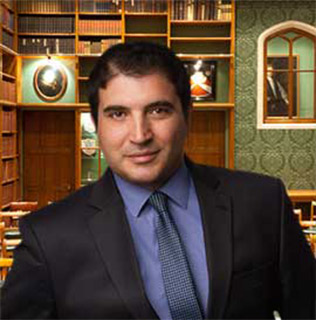
 >
>

An aviation accident is, generally, defined as an occurrence that causes injury or death associated with the operation of an aircraft, taking place between the time a person boards the aircraft with the intention to fly until such person disembarks the aircraft.
Air transportation is considered a safe means of transportation. However, accidents do happen, which result in injury or fatality. The most common causes for aviation accidents include:
If you’ve been injured in any type of aviation accident or someone you know has been killed, obtaining justice from those responsible is highly complex. Here at ChosenLawyers.com, we diligently seek and carefully choose some of the most Capable, Credible and Compassionate Accident Lawyers, who are ready, willing and able to help you obtain a just compensation.
For a FREE and CONFIDENTIAL Case Evaluation, please click HEREand start the process of healing!
In the United States, two federal agencies of National Transportation Safety Board (NTSB) and Federal Aviation Administration (FAA) regulate all private and public aviation. They also investigate all aviation accidents. The FAA delineates the standards for pilot qualifications and conduct, flight operations, aircraft manufacturers, and enforces the rules and regulations for civil and criminal liabilities. The NTSB is in charge of investigating every civil aircraft accident; determining the causes of accidents and recommending measures to prevent such accidents in the future.
While, the circumstances, which cause an aviation accident leading to injury or death do vary; generally, the legal theories of negligence, product liability, or some combination of the two could define the rights and responsibilities of parties involved.
Since, aviation industry is regulated by NTSB and FAA, federal rules and regulations may also impact a personal injury claim; the standards of care owed to the victim and the potential compensation awarded to the victim of an aviation accident.
Aviation Litigation is very complex, which could involve many laws in State and Federal Levels, as well as the International Law. There could be several potential defendants and a number of different courts to choose from.

In order to hold someone legally responsible for an aviation accident, the injured person (the "plaintiff") must prove that the person responsible (the "defendant") failed to meet an industry standard related to operation of the aircraft, engineering, or certain other regulatory mandates.
Negligence is a legal doctrine, under which certain parties could be held liable for their failure to do a wrongful act or to refrain from doing something that the law requires them to do under some circumstances.
Product Liability is a legal doctrine, which holds manufacturers and others involved in the line of commerce of producing and/or distributing a defective product or part that caused the underlying accident and injuries.
Most courts impose Strict Liability on owners and operators of aircrafts for damages they cause onto people and/or properties on the ground. Such injuries could happen due to falling objects from an aircraft or crash of an aircraft.
Indemnification: This legal term simply means that the party who has incurred loss and expenses, to be compensated. Thus, if in an accident the owner and/or operator of an aircraft is held liable strictly for damages on the ground, they may be entitled to seek indemnification from the manufacturer of the aircraft and/or providers of parts and/or other parties in distribution channels.

Aircraft owners and operators are held to high standards when it comes to the legal "duty of care" owed to others. If carelessness or recklessness can be proven, then the owner will be held liable for the damages suffered by any injured parties; whether the parties with in the aircraft or on the ground. Even if the owner was not operating the aircraft when the accident occurred, the owner may still be held liable under a legal theory called “Respondeat Superior” or vicarious liability. This theory is similar to the way in which employers may be legally responsible for the actions of an employee in the scope of employment.

Commercial airlines fall under the legal classification of a "common carrier," which are held to a much higher standard of care, because they are in the business of carrying paying passengers around.
A victim of an aviation accident may recover for a number of damages, including:

Burden of Proof is what a plaintiff or her/his attorney must prove to win their case. In aviation accidents, burden of proof can be regulated by many laws: domestic and/or international. For instance, on an international flight under the Montreal Convention (a treaty which regulates International Aviation Accidents), the victim does not have to prove negligence against the airline. Thus, if a food cart injures a passenger he or she does not have to prove negligence. However, the extent of injuries and damages must always be proven.
Whereas, in a domestic accident, the plaintiff is required by law to prove that the carrier was negligent. This seemingly simple rule means that the Insurance Companies covering the airlines are more inclined to settle cases without trials if it involves an international accident.
Aviation Laws are far too complex. If you’ve been injured in any type of aviation accident or a loved-one has been killed; obtaining justice from those responsible is very complex. To file a viable lawsuit, you would require the expertise of a highly committed and compassionate lawyer who is experienced in Aviation Accidents.
Here at ChosenLawyers.com, we diligently seek and carefully choose some of the most Capable, Credible and Compassionate Aviation Accident Lawyers, who are ready, willing and able to help you obtain what you deserve.
For a FREE and Confidential Case Evaluation, please click HERE and start the process of healing!®


